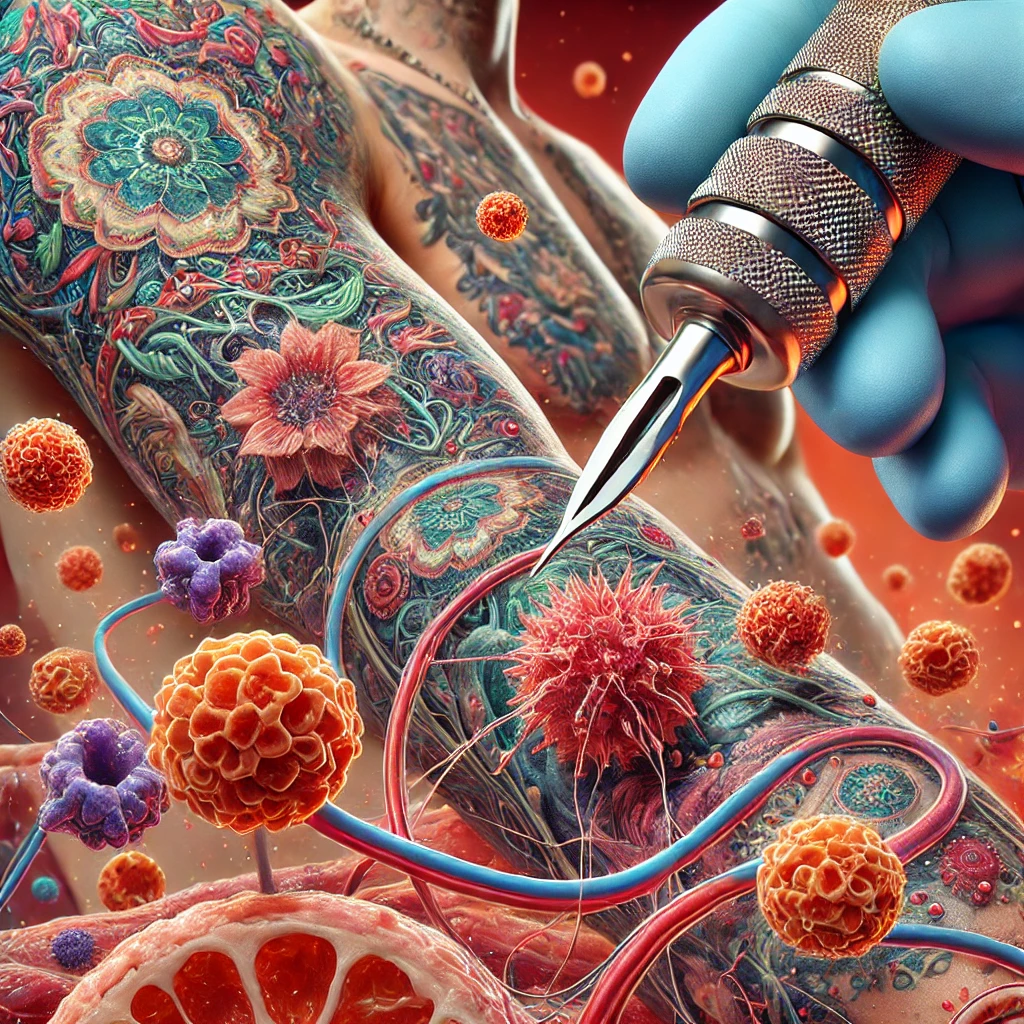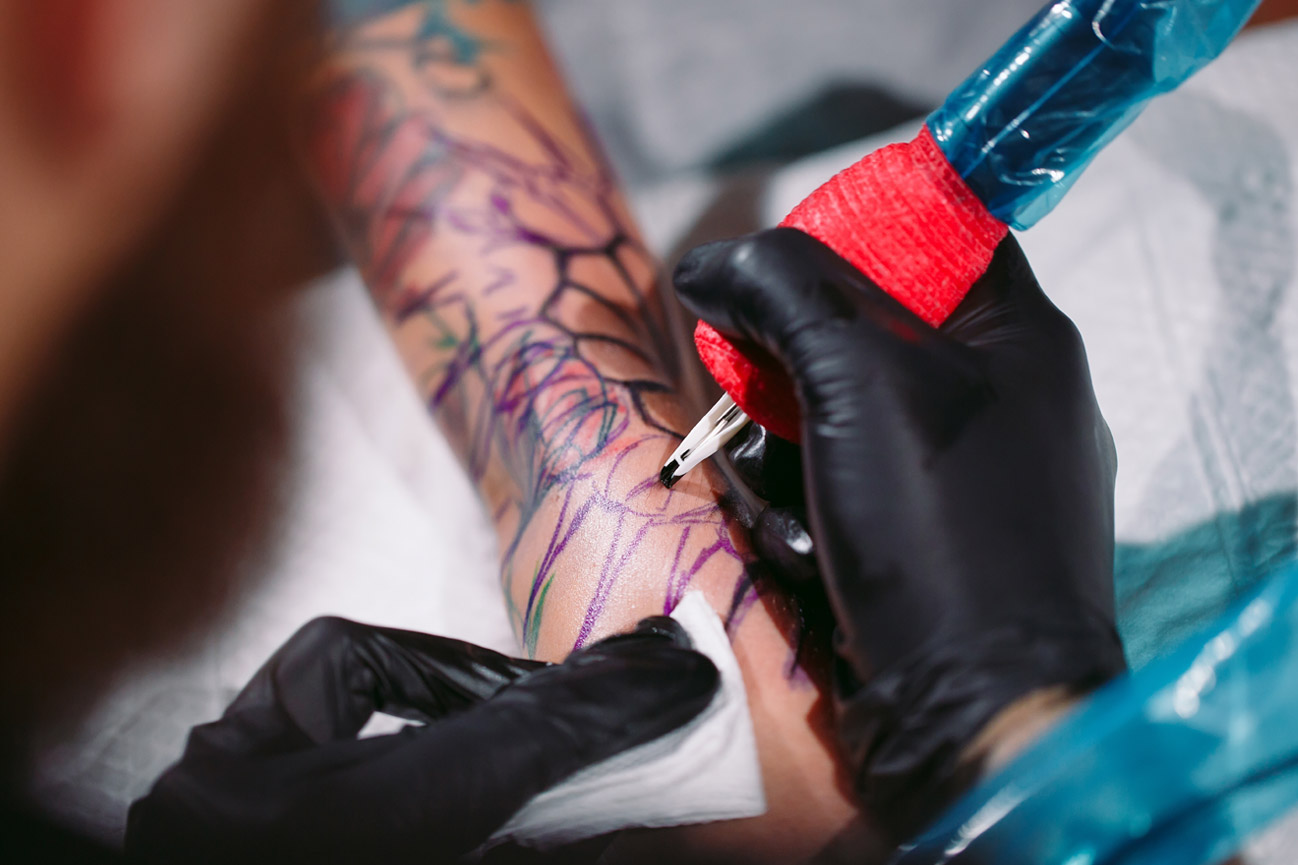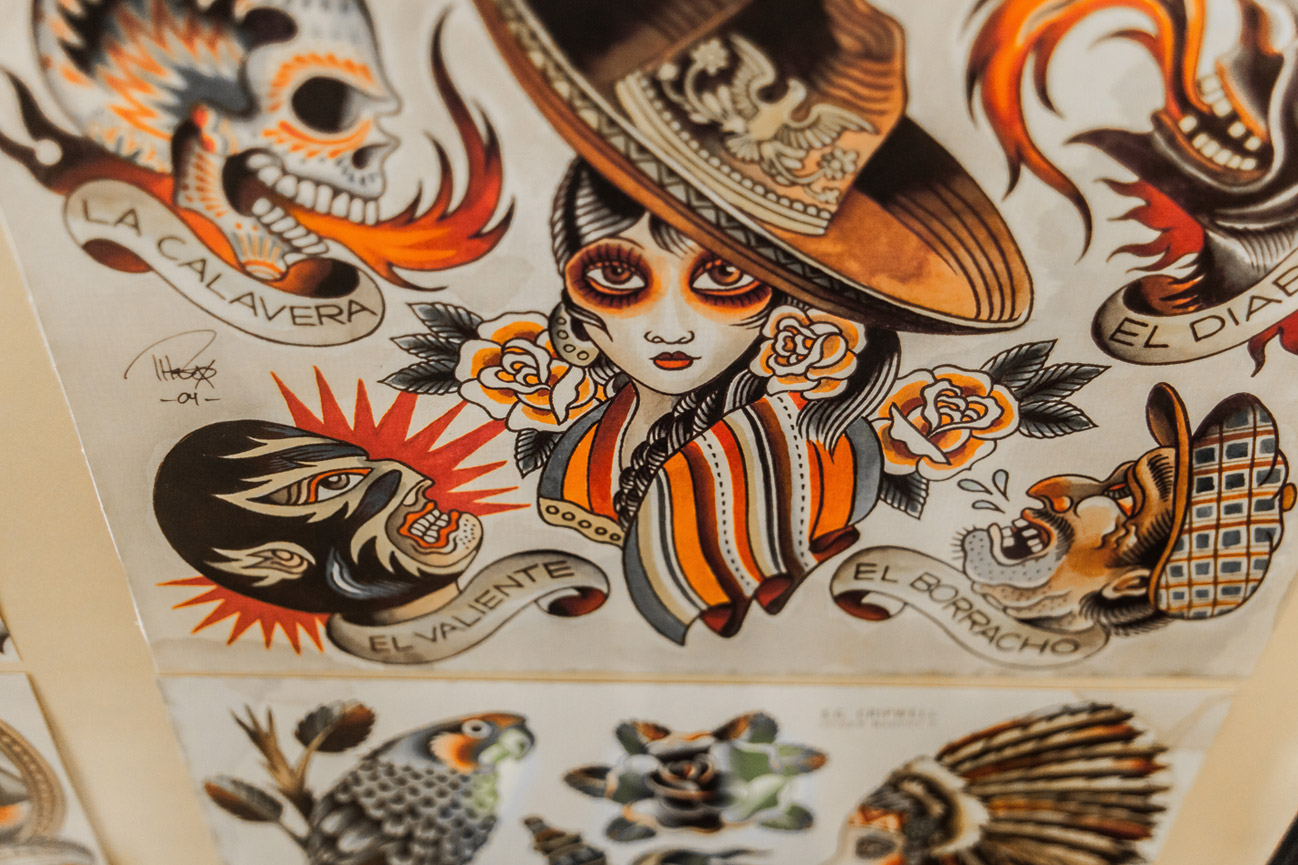Tattoos have transcended their historical associations to become a mainstream form of self-expression, adorning the bodies of millions worldwide. But beneath the surface of this artistic phenomenon lies a fascinating interplay between the tattoo needle and the human immune system.
Let’s delve into the science behind this interaction and explore how your body responds to the introduction of ink into the skin.
The Immune System’s First Line of Defense
When the tattoo artist’s needle punctures your skin, it triggers an immediate immune response. Your body perceives the ink particles as foreign invaders, setting off a cascade of protective mechanisms. The first responders are the white blood cells, particularly macrophages and neutrophils, which rush to the tattoo site to engulf and neutralize these perceived threats. This inflammatory response is responsible for the initial redness, swelling, and tenderness you experience after getting a tattoo.
Ink as a Persistent Guest
While the initial immune response is swift, the tattoo ink doesn’t disappear overnight. In fact, some ink particles become permanent residents in your skin. Macrophages, in their attempt to eliminate the ink, end up engulfing some of the pigment and carrying it to nearby lymph nodes.
Other ink particles may remain trapped within the dermis, the middle layer of your skin. This persistence of ink is what makes tattoos last for years, even decades.
The Role of Lymph Nodes
Lymph nodes play a crucial role in filtering foreign substances from the body. In the case of tattoos, they act as a temporary storage site for some of the ink particles transported by macrophages.
Over time, some of these particles may be broken down and eliminated, while others remain within the lymph nodes, potentially contributing to their slight enlargement.
Long-Term Effects on the Immune System
While the immediate immune response to tattoos is well-understood, the long-term effects on the immune system are still being investigated.
Some studies have suggested that tattoos might lead to subtle changes in immune function, such as an increase in certain types of white blood cells.
However, more research is needed to fully understand the implications of these findings.
Choosing the Right Artist and Studio
When considering getting a tattoo, prioritize your health and safety by selecting a reputable artist and studio. Ensure they adhere to strict hygiene practices, use sterilized equipment, and source high-quality inks. A skilled artist will also be able to advise you on proper aftercare to minimize the risk of infection and complications.
If you’re searching for reputable establishments, you might find online resources listing the best tattoo shops in Austin or other locations to be helpful.
Allergic Reactions and Other Complications
Although rare, allergic reactions to tattoo ink can occur. These reactions can manifest as itching, redness, swelling, or even blisters. If you experience any unusual symptoms after getting a tattoo, seek medical attention promptly.
Other potential complications, such as infections, can also arise if proper aftercare isn’t followed.
The Beauty of the Body’s Response
While the immune system’s response to tattoos might seem like a battle, it’s ultimately a testament to the body’s remarkable ability to protect itself. Understanding this intricate process allows us to appreciate the artistry of tattoos while respecting the complex biological mechanisms at play.
So, the next time you admire a tattoo, remember that it’s not just a work of art—it’s also a testament to the fascinating dialogue between ink and immunity.
The Tattoo Healing Process: A Symphony of Regeneration
Beyond the initial immune response, the tattoo healing process is a remarkable journey of regeneration and repair. In the first few days, your skin will form a scab to protect the tattooed area. Beneath this protective layer, new skin cells are diligently working to replace the damaged ones.
As the scab gradually flakes off, you’ll notice the tattoo’s colors becoming more vibrant. Complete healing can take several weeks, during which it’s essential to keep the area clean and moisturized.
Tattoos and Sun Protection
While tattoos are a form of self-expression, they require special care to maintain their vibrancy and longevity. Sun exposure is a major culprit in fading tattoos. UV rays can break down the ink pigments, causing the colors to dull over time.
To protect your investment, apply a broad-spectrum sunscreen with a high SPF to your tattoos whenever they’re exposed to the sun.
The Mind-Body Connection
Beyond the physical aspects, tattoos often hold deep personal meaning. They can serve as reminders of loved ones, milestones, or personal beliefs. The process of getting a tattoo can also be a transformative experience, marking a significant moment in one’s life.
Research suggests that tattoos can boost self-esteem and body image, providing a sense of empowerment and ownership over one’s body.
Tattoos in Different Cultures
Tattoos have a rich and diverse history, spanning across cultures and continents. In some cultures, tattoos have served as symbols of status, rites of passage, or spiritual protection. Exploring the cultural significance of tattoos can offer a deeper appreciation for this ancient art form and its enduring impact on human expression.
The Future of Tattoo Technology
As technology advances, so does the world of tattooing. New ink formulations, tattoo removal techniques, and even 3D tattoos are emerging, pushing the boundaries of this art form. While traditional tattoos remain popular, these innovations offer exciting possibilities for those seeking unique and personalized body art.
Embracing Individuality
Tattoos are a powerful way to express individuality and tell your story. Whether you choose a small, discreet design or a full sleeve masterpiece, your tattoo is a reflection of your unique personality and journey. Embrace the artistry, the science, and the personal significance of your tattoos, and wear them with pride.
Remember, the decision to get a tattoo is a personal one. By understanding the science behind the body’s response to ink, you can make an informed choice and ensure a safe and enjoyable experience. If you have any concerns about tattoos and your health, consult with a healthcare professional for personalized advice.




